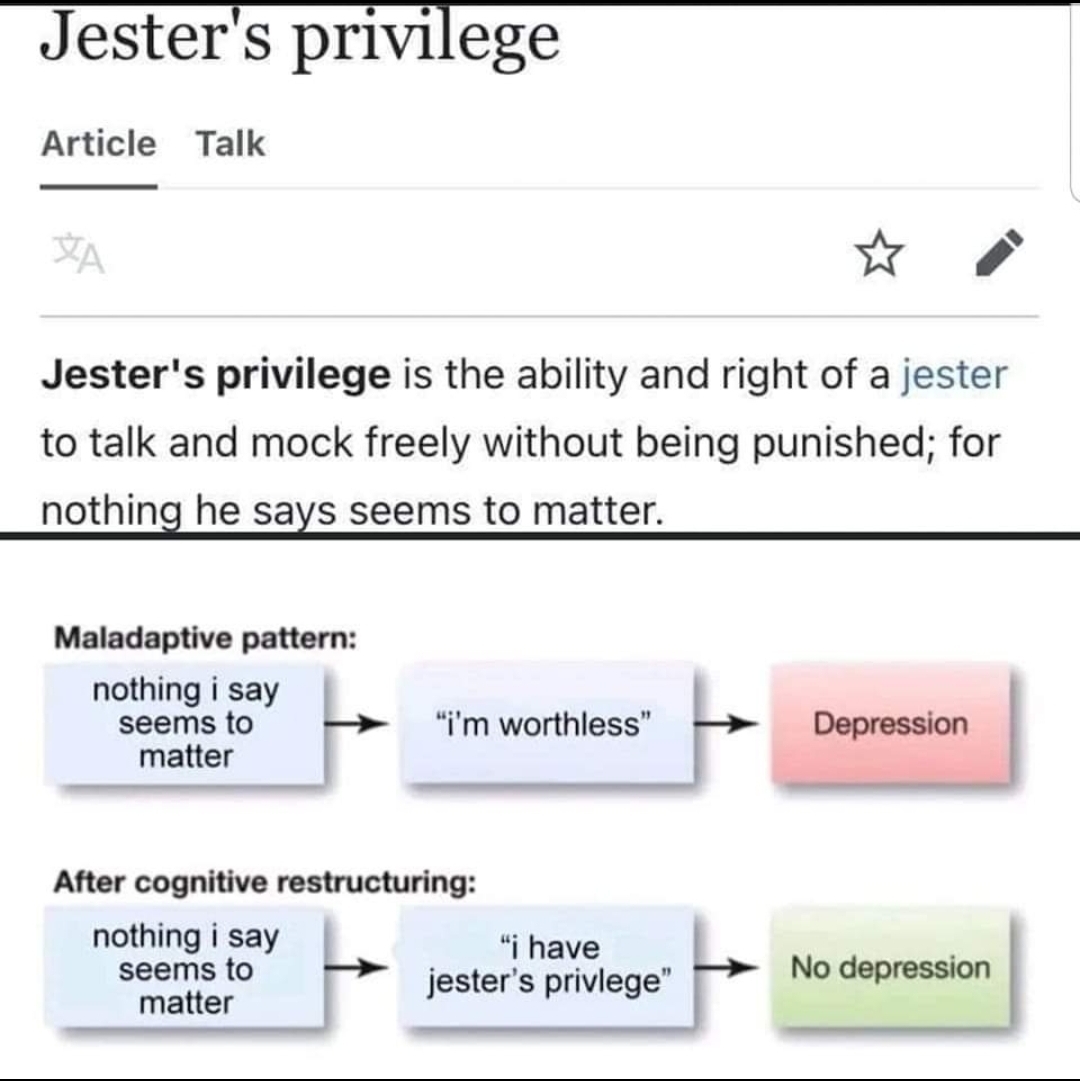this post was submitted on 05 Oct 2024
150 points (100.0% liked)
hopeposting
1087 readers
44 users here now
Proof of the indomitable human spirit.
Rules:
- Posts must inspire hope or highlight the beauty of existence
- Posts and comments harassing or antagonizing a real person will be removed
- Posts mentioning religious topics are allowed but religion should not be the main point of the post. E.g. “God’s beautiful world” is fine because of the “beautiful world” part, but “God loves you” isn’t because religion is the focal point
- Posts and comments judging group of people in negative way based on stereotype will be removed.
- No posts with toxic positivity. All human emotions are valid.
founded 2 years ago
MODERATORS
you are viewing a single comment's thread
view the rest of the comments
view the rest of the comments

This was the problem I had with it too.
I think it may work for someone who isn’t keen on introspection in the first place, but if you are, you’ve probably already spent a decent amount of time reflecting on the truthiness of your thoughts and feelings, and even when you know they aren’t necessarily accurate, just fluffing yourself up doesn’t solve anything, because you are acutely aware that’s what you are doing.
It’s even worse when the things you need therapy for are circumstantial, like work/relationship stress or trauma, or about some core part of who you are (autism/adhd, etc) and they try to apply cbt.. like… that’s not helpful because the problem isn’t with my outlook, it’s with something I have no or very little actual control over, and I need productive ways to deal with it. I want someone to point out when I’m thinking about things wrong, sure, but that’s more like that I “sneak” food in the middle of the night and feel guilt for helping myself (despite having permission to eat whatever I want - only my own food that I pay for is fair game in my mind) and refer to taking food from the family fridge as a kid as theft, because my mother used to tell me I stole it, and I did used to be a klepto. I want someone to point out my trauma responses, not tell me to view all the stressful things as opportunities when they aren’t.
I did read a book, however, that I like to recommend to therapists I talk to, so they can be aware that I’m aware of self-restructuring already. It’s actually a really good book, and I hope the research is fully accurate because if so, just reading it and knowing about how stress can be good for you, is actually enough to help lower all-cause mortality related to stress, which would be pretty cool. It’s called The Upside of Stress: Why stress is good for you, and how to get good at it by Dr. Kelly McGonigal (link removed due to sucking - internetarchive apparently stripped that title as part of the purge, and I can’t find any other links that aren’t to torrents, or shady, but if you search for audiobookbay, you can find it there as an audiobook and I’ve used that site for years.)
Yeah. Inattentive ADHD caught late in life here. Thanks for the book recommendation. I'm definitely gonna check it out.